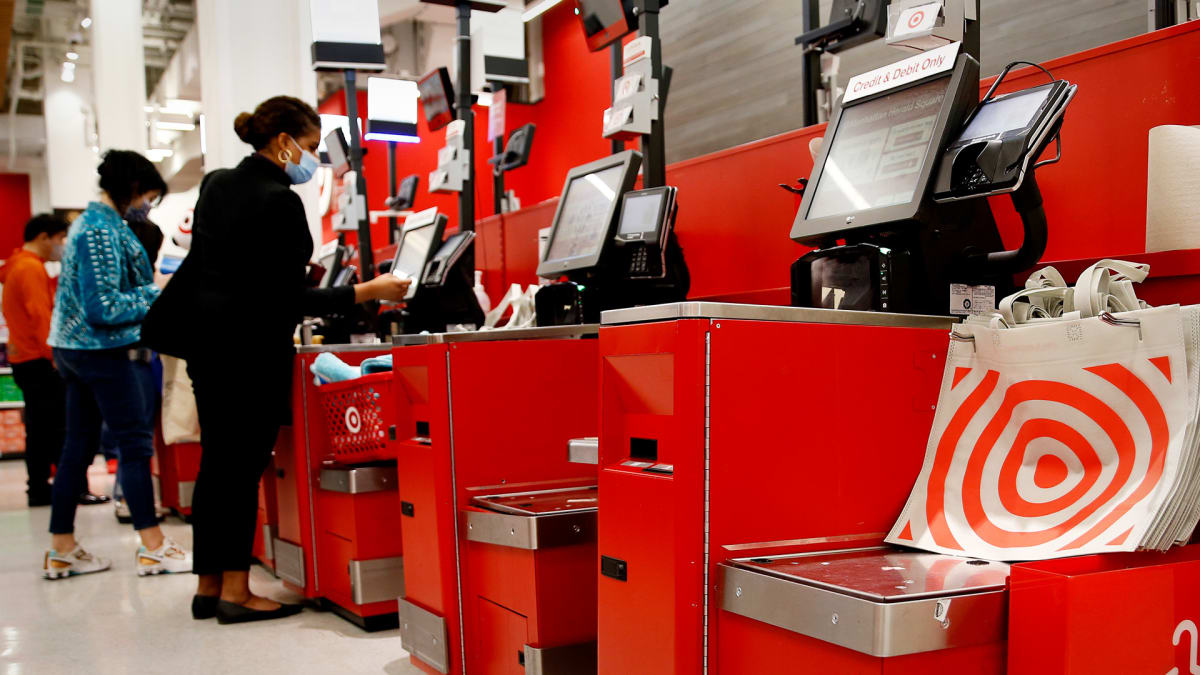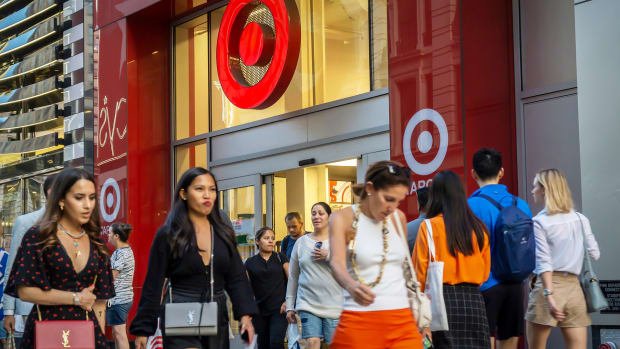
Target (TGT) has an inventory problem. The chain found itself with warehouses filled with the items people wanted during the pandemic -- bulky items like televisions, furniture, and exercise equipment -- and it made the decision to sell some of that excess off at a discount to clear room in its warehouses for the holiday season.
Offering lower prices hurts margins and profits, but it's a driver for customers and it strengthens their loyalty to the brand. That's why CEO Brian Cornell's comments on the quarter not being what the company hoped for during the chain's third-quarter earnings call only tell a piece of its story.
Q3 profitability came in well below our expectations, driven by several factors. First and foremost, we faced an unexpected gross margin rate headwind from a higher-than-expected mix of promotional sales, as guests moved away from full-price purchases. In addition, like the rest of the industry, we're facing a growing financial headwind from shortage, which is running hundreds of millions of dollars higher than a year ago. Along with other retailers, we've seen a significant increase in theft and organized retail crime across our business.
Investors tend to focus on the negative and a company failing to meet expectations, admitting that theft has gone up, and adjusting its holiday season to include a possible year-over-year decline tends to send shares down. That has happened to Target which has seen its share price fall roughly 36% over the past 12 months,
When you dig into what's actually happening, however, you don't see a struggling company. Instead, you see a retailer that's very well-positioned to do well against its chief rivals Walmart (WMT) and Amazon (AMZN).

Shutterstock
Target Saw More Customers, Higher Sales
While it wasn't all good news in the short term, Target actually reported a lot of good news. Customer traffic was up 1.4% year-over-year and those shoppers spent 1.3% more.
"Because of the deepening level of trust we've established with our guests over the last several years, our top line continues to benefit from growth in guest traffic and new share gains across all of our core categories," Cornell said. "This is particularly notable as consumers are showing increasing signs of stress and pulling back from discretionary purchases. And it reinforces the value of having a balanced multi-category portfolio, which allows us to satisfy our guests' ever-changing wants and needs.
Basically, Target has loyal customers in ways that Walmart and Amazon mostly don't. Yes, Walmart appeals to priced-based shoppers and Amazon delivers a mix of price and convenience, but Target has a special connection with its customer base.
People go to Target to walk the aisles for fun when they only need a few things. Have you ever heard someone say that walk around Walmart for fun? In many ways, Target has the same joy of discovery-based shopping that Costco benefits from as people like to see what's on sale, new brand or celebrity partnerships, and other merchandise even if they may not buy it.
Target's Sky Is Not Falling
In addition to seeing increased foot traffic in its stores, Target also reported a strong same-store sales number.
"Q3 comparable sales grew 2.7%, on top of 12.7% a year ago and 20.7% in the third quarter of 2020," Cornell said.
The pandemic set a very high bar for growth and Target exceeded that bar. Customer needs are clearly changing and that's not a negative.
"In addition to traffic growth, we saw a 1.3% increase in average ticket as guests continue to rely on Target for convenient, reliable one-stop shop. Across our merchandise categories and similar to the second quarter, we saw very strong growth in our frequency businesses, led by double-digit growth in both beauty, and food and beverage," the CEO said.
Yes, people spent less on discretionary items, but they still relied on Target for what they needed. If times get tighter -- and Cornell expects they may -- profits may be lower, but the chain will hold onto its customer base, and likely build an even stronger connection.
Amazon and Walmart may do that to a certain extent, but Target scored a 78 on the most-recent American Customer Satisfaction Index for retail, gaining two points, and finishing near the top. Walmart came in at the bottom with a 71. In the e-commerce category -- an area where Target has not invested as heavily as its rivals -- Target tied Amazon at 78 while Walmart again came in at the bottom with a 72.
While stocks often go down based on an earnings miss and/or guidance that's revised down, good CEOs don't manage for the quarter. Cornell has built Target's connection with its customer and they keep coming back. That will get the company through any sort of economic downturn and while short-term profits may suffer, the chain will come out the other side stronger.







